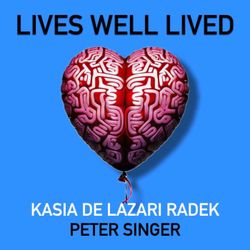Latest episode
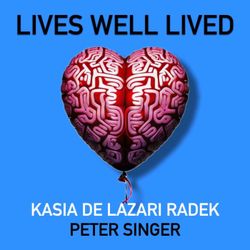
2. REBECCA GOLDSTEIN thinks we are all attention seeking
01:02:07||Season 4, Ep. 2Rebecca Goldstein is an American philosopher, and novelist of 'The Mind Body Problem'. Goldstein examines the human need to feel that one’s life matters, and the ways people justify their existence through relationships, achievements, fame, and moral purpose.Keep up to date with Peter on SubstackKeep up to date with Kasia!Executive Producer: Rachel Barrettspecial thanks to Suzi Jamil!
More episodes
View all episodes
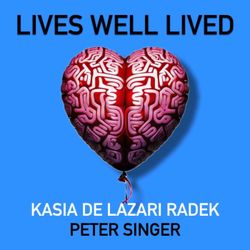
1. forget happiness, JENNIFER WALLACE thinks mattering is the key to a fulfilling life
51:52||Season 4, Ep. 1Jennifer Wallace is an American journalist and author best known for her book Never Enough: When Achievement Culture Becomes Toxic—and What We Can Do About It, which explores how high-pressure achievement environments impact mental health. Jennifer explores the concept of 'mattering' and distinguishes the difference between self-esteem and mattering.Keep up to date with Peter on SubstackKeep up to date with Kasia!Executive Producer: Rachel Barrettspecial thanks to Suzi Jamil!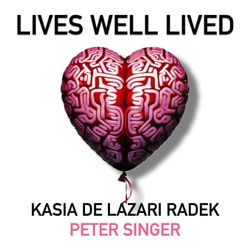
21. (RE-RELEASE) LISA FELDMAN BARRETT: everything you know about the brain is wrong!
01:14:22||Season 3, Ep. 21Lisa Feldman Barrett is a neuroscientist, psychologist, and author known for her groundbreaking research on how emotions are created by the brain rather than simply triggered by external events. She has challenged traditional views of emotion and helped establish new ways of understanding the construction of emotional experiences.Lisa talks about how the brain's processes can help overcome anxiety related to public speaking, and the construction of social reality.Keep up to date with Peter on SubstackKeep up to date with Kasia!Executive Producer: Rachel Barrettspecial thanks to Suzi Jamil!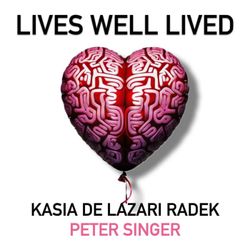
20. (RE-RELEASE) Why YUVAL NOAH HARARI thinks modern society is on the brink of collapse
56:08||Season 3, Ep. 20Professor. Yuval Noah Harari is a historian, philosopher, and the bestselling author of Sapiens: A Brief History of Humankind. His books have sold over 45 Million copies in 65 languages, and he is considered one of the world’s most influential public intellectuals today.Yuval discusses the the main victims of history throughout the ages, and what was arguably the worst crime in history, and gives his views on the importance of love and intellect.Keep up to date with Peter on SubstackKeep up to date with Kasia!Executive Producer: Rachel Barrettspecial thanks to Suzi Jamil!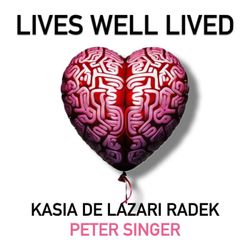
19. (RE-RELEASE) INGRID NEWKIRK: the dark side of animal rights
01:20:52||Season 3, Ep. 19Ingrid Newkirk is an author, activist, and president of People for the Ethical Treatment of Animals (PETA), the world's largest animal rights organisation. Ingrid discusses PETA's achievements, and the compromises she has had to make in order to reduce the vast universe of suffering that humans inflict on animals, and how these ideals could be implemented throughout society to enable revolutionary change.Keep up to date with Peter on SubstackKeep up to date with Kasia!Executive Producer: Rachel Barrettspecial thanks to Suzi Jamil!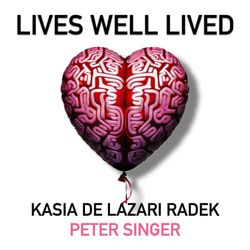
18. (RE-RELEASE) DANIEL KAHNEMAN: understanding how we make decisions
01:03:45||Season 3, Ep. 18Daniel Kahneman was an Israeli-American psychologist, awarded the 2002 Nobel Memorial Prize in Economic Sciences, and his work revolutionised our understanding of human decision-making. This is Kahneman's last public interview before his death on March 27, 2024.Keep up to date with Peter on SubstackKeep up to date with Kasia!Executive Producer: Rachel Barrettspecial thanks to Suzi Jamil!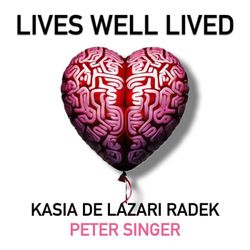
17. (RE-RELEASE) A.J. JACOBS exposes why living biblically means stoning adulterers!
01:12:05||Season 3, Ep. 17A.J. Jacobs is an author, humourist and journalist, who has written four New York Times bestsellers. Jacobs discusses his unique life as a 'human guinea pig,' exploring different ways of living through immersive year-long experiments such as living according to all biblical rules, and living like America's Founding Fathers. A.J. discusses his motivations behind these experiments, and recounts his experiences with radical honesty, and biblical literalism.This episode is sponsored by GiveWell. You can have your donation matched up to $100 before the end of the year! (or as long as matching funds last) go to givewell.org to donate or find out more. Enter LIVES WELL LIVED at the checkout!Keep up to date with Peter on SubstackKeep up to date with Kasia!Executive Producer: Rachel Barrettspecial thanks to Suzi Jamil!
